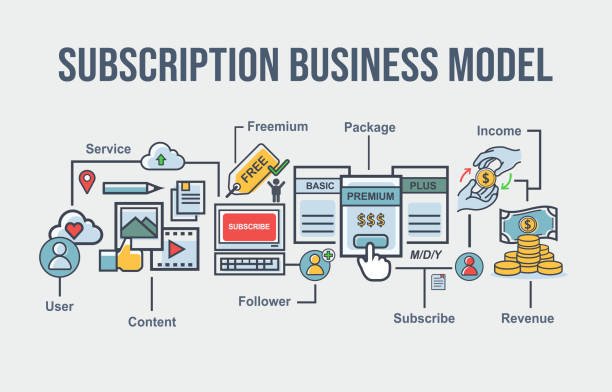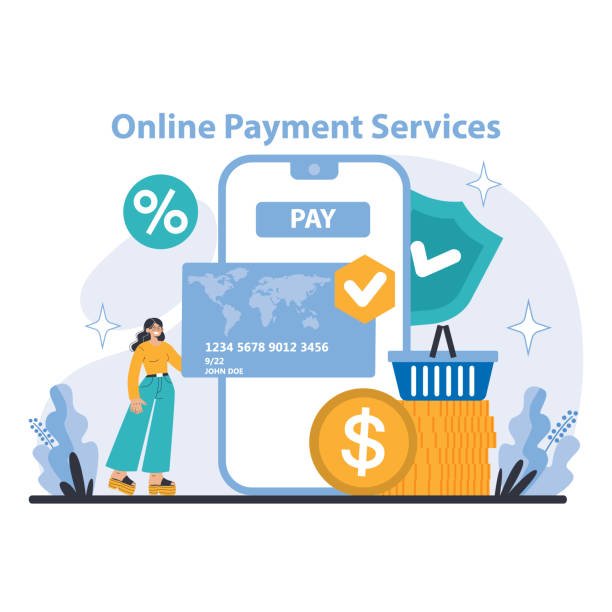Introduction
Today in this article we discuss Making Money with eCommerce: A Beginner’s Guide. Nowadays the trend of e-commerce is very fast and more and more people are incorporating it into their daily life. With the popularity of online shopping, there are new business opportunities for Logon. But if you’re new to the world of e-commerce, you might find it all a bit overwhelming. In this article we will understand in detail the basic concepts of e-commerce and how to make money from it. Our guide will help you step into the e-commerce arena.
1. Basics of E-Commerce
E-commerce stands for electronic commerce, which deals with online transactions and commerce. Namely, you can sell products or services over the Internet. It differs slightly from traditional retail in that there is no need for a physical store. You need to surf a website or platform where you can showcase your products. In e-commerce you have to do market research to understand your target audience and offer products according to their needs.
2. Importance of market research
Market research is a fundamental step in the field of e-commerce. Its main purpose is that you can analyze your competitors and market trends. This will help you understand what kind of products you should offer and what your target audience is looking for. Through market research you will also know what your pricing strategy should be and what kind of marketing strategies you should adopt.
3. Choice of business model

To operate in e-commerce you have to choose a business model. This model will decide who your products will be and how your business operations will run. Common e-commerce models include B2C (business-to-consumer), B2B (business-to-business), and C2C (consumer-to-consumer). Each model has its own advantages and challenges, so choosing an appropriate model is important considering your business goals and target audience.
4. Platform selection
Choosing a platform for your e-commerce store is also very important. There are several platforms available in the market such as Shopify, Woo Commerce, Magento, and Big Commerce. The choice of platforms depends on your business needs and budget. Platforms like Shopify and Woo Commerce are easy-to-use and easy to set up for beginners. But if you want more customization, a platform like Magento might be better options.
5. Product Selection and Inventory Management
Product selection is an important aspect of e-commerce business. You have to decide what kind of products you will sell and what will be their source. You can manufacture your products yourself or buy from suppliers. Inventory management is equally important. You have to monitor your stock levels so you can avoid out of stock situations and provide timely delivery to your customers.
6. Website Design and User Experience
The design and user experience (UX) of your e-commerce website also play an important role in the success of the business. Your website should be user-friendly and visually appealing. The navigation of the website should be simple so that the users can avoid the products easily. Mobile responsiveness is also important because nowadays more and more people are shopping through mobile devices. You need to optimize the website so that the load time is fast and the checkout process is smooth.
7. Payment Gateways and Security

A secure payment process is essential in e-commerce. You should choose reliable and secure payment gateways so that your customers can pay easily and securely. Common payment gateways include PayPal, Stripe, and Authority.net. Security features such as SSL certificates should also be implemented to keep your users’ sensitive information safe. You’ll also want to apply regular security updates and patches.
8. Marketing strategy
An effective marketing strategy helps an e-commerce business grow. You should use SEO (Search Engine Optimization), content marketing, social media marketing, and paid advertising. SEO will help your website rank higher in search engine results, which will increase traffic. Social media platforms like Facebook and Instagram also help promote your products and increase customer engagement.
9. Customer Service and Support
Customer service is a critical factor for e-commerce success. You must provide timely and efficient support to your customers. Name pre-sales and post-sales support are two types. You have to handle customer queries and complaints effectively. Your website will have options like live chat, email support, and phone support so that customers can easily get help whenever they want.
10. Order Fulfillment and Shipping
Also manage order fulfillment and shipping processes efficiently. You must ensure that your orders are delivered in a timely and accurate manner. You need to optimize shipping options and rates to give customers the best possible experience. You can also hire third-party logistics providers (3PL) to handle your fulfillment and shipping tasks.
11. Analytics and Performance Tracking

Tracking the performance of an e-commerce business is essential so you can improve your strategies. You should use analytics tools that help you track sales data, customer behavior, and website performance. Tools like Google Analytics provide you with detailed insights that support your decision-making process. Performance tracking will let you know how effective your marketing strategies and other efforts are.
12. Measuring your business
As your e-commerce business grows, you need to adopt a scaling strategy. Scaling means you can handle more customers and sales to expand your business operations. You must scale your supply chain, inventory management, and customer service processes. You can also target international markets, expanding your customer base.
13. Legal and Regulatory Considerations
You also have to consider the legal and regulatory requirements for running an e-commerce business. You will need to obtain business licenses and permits that vary depending on your region and type of business. Data protection laws and consumer rights regulations must also be followed. Ensuring legal compliance can protect your business from potential legal problems.
14. Challenges and Solutions
There are many challenges in the field of e-commerce such as competition, changing market trends, and consumer expectations. You have to come up with effective strategies to face the challenges. You have to constantly monitor market trends and adjust your business strategies. It is also important to use competitive analysis and customer feedback to overcome your challenges.
Final Words
Making Money with eCommerce: A Beginner’s Guide. Starting and succeeding in an e-commerce business can be challenging, but if you understand the basics and implement your strategies effectively, you can be successful. Market research, choosing the right platform, effective marketing, and excellent customer service are key factors in the success of your business. Follow the guidelines and you can grow your e-commerce business and make a mark in the online market.

Leave a Reply